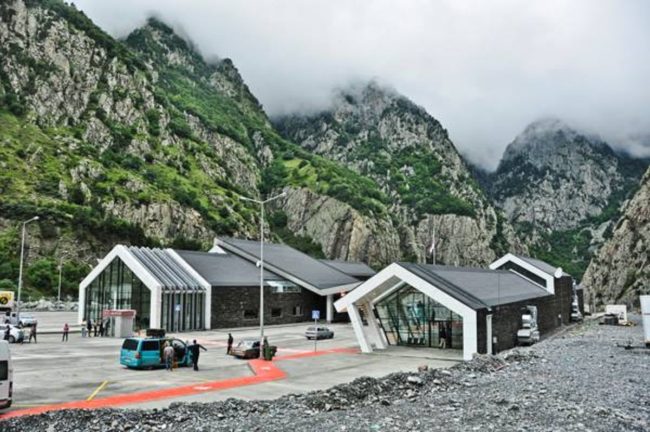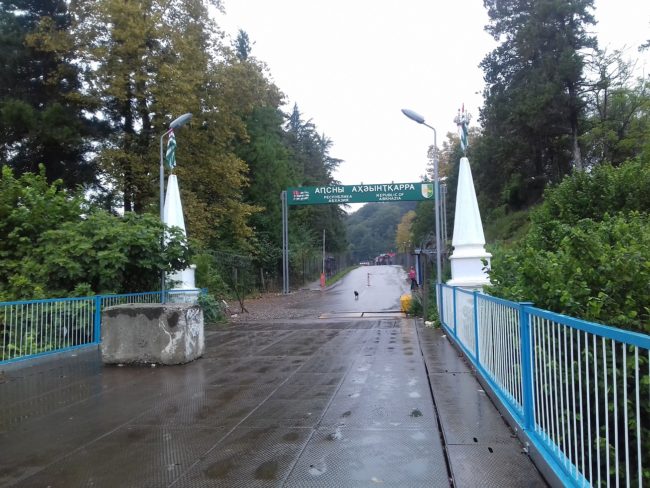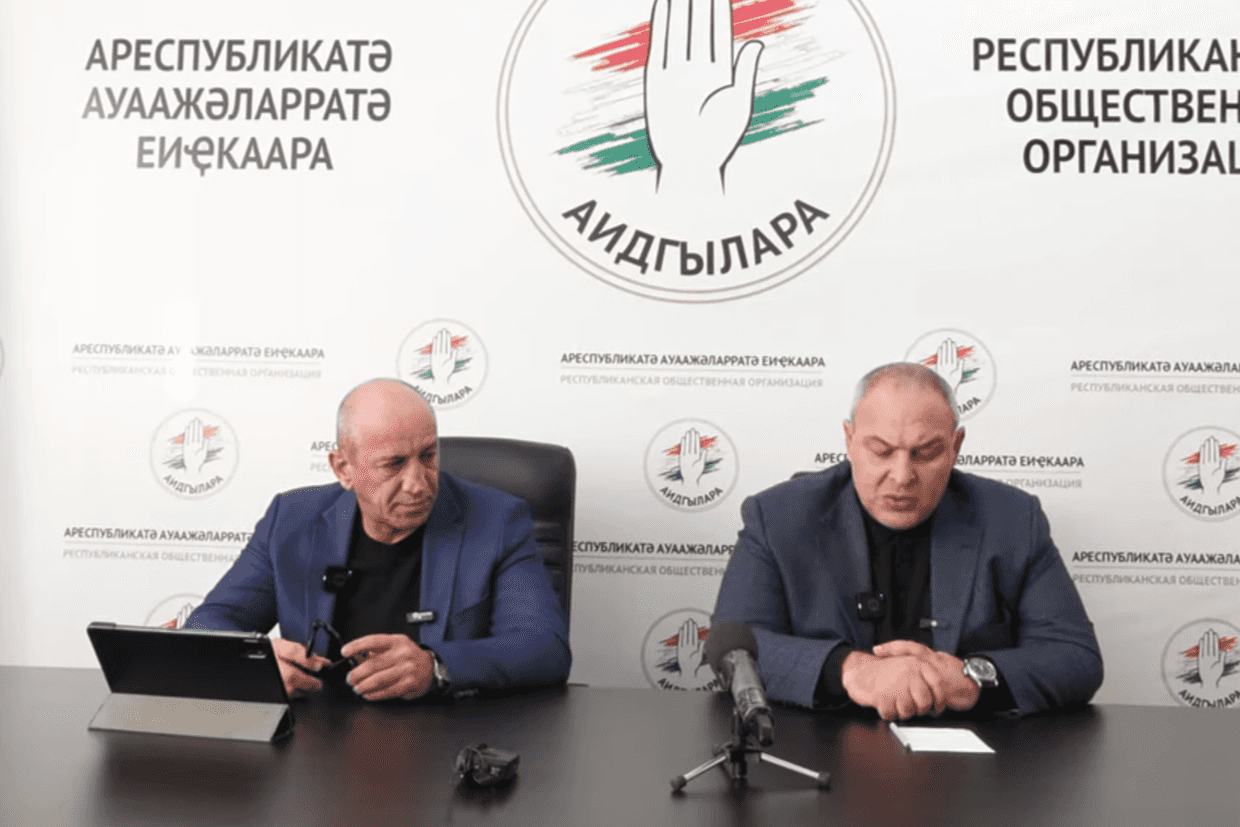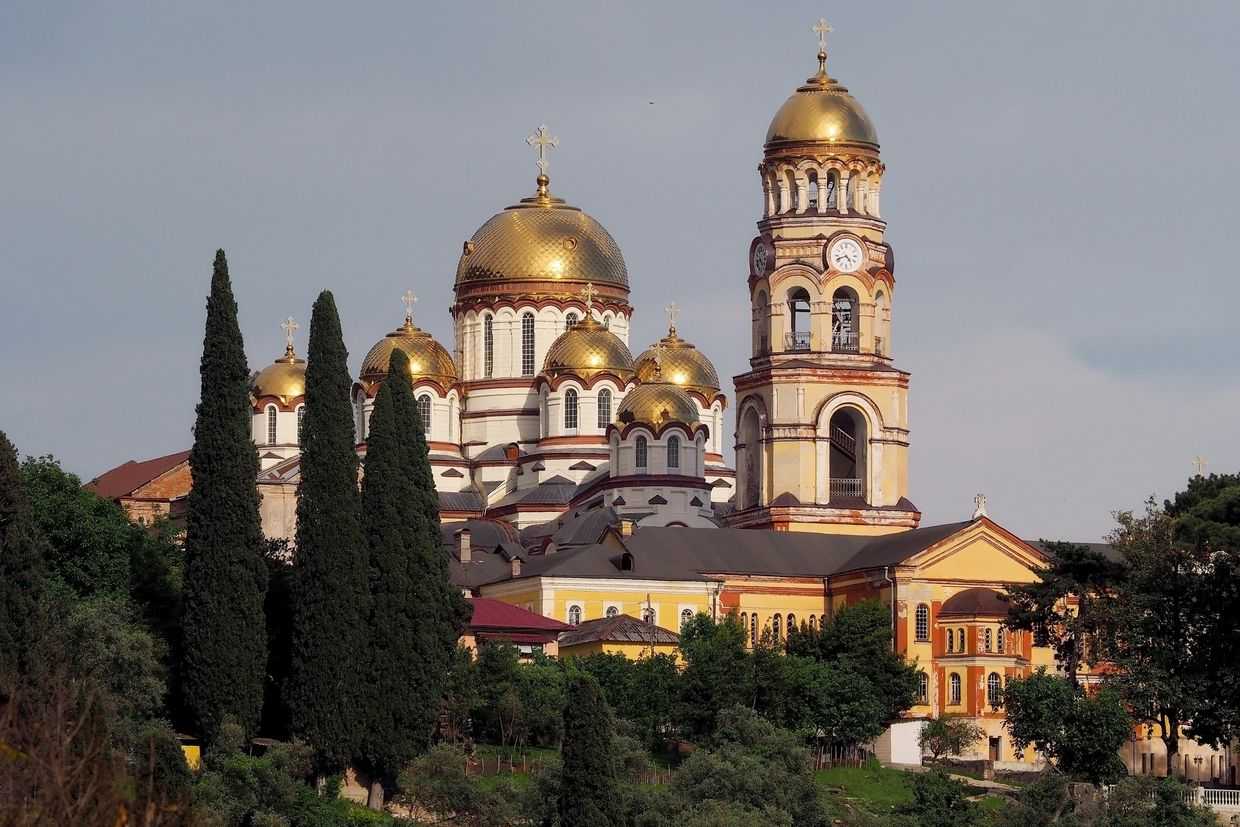


An agreement to create three trade corridors between Russia and Georgia, including through Abkhazia and South Ossetia, is to move forward, according to Russian Deputy Foreign Minister Grigory Karasin. Karasin met with the Georgian PM’s Special Representative to Russia, Zurab Abashidze, on Thursday in Prague.
The pair were discussing the implementation of a 2011 deal on customs monitoring, among other issues, which was a precondition for Georgia giving the green-light to Russia’s World Trade Organisation membership that year.
Following the meeting, Karasin said they had ‘reached the important decision to continue [negotiations]’. ‘We are interested in implementing the 2011 agreement’ he added.
The latest Abashidze–Karasin meeting followed separate agreements signed by the Georgian and Russian governments with Swiss company SGS to monitor goods travelling through the three corridors.
According to the 2011 agreement, SGS is to be a third, neutral party monitoring cross-border cargo traffic and will be responsible for collecting and sharing information about goods crossing the border.
The three corridors are to be the Kazbegi–Zemo Larsi border crossing, part of the Tbilisi–Vladikavkaz highway and the only Russia-Georgia crossing under Georgia’s control, as well as through Abkhazia and South Ossetia. The agreement said the Abkhazian corridor goes from the ‘Abkhazian section of the Georgian–Russian border’ and passes through the ports of Sukhumi (Sukhum) and Ochamchire and the entire Abkhazian shoreline, ending in Zugdidi, the administrative centre of western Georgia’s Samegrelo–Zemo Svaneti Region. The third corridor would run from Gori along the Transcaucasian Highway connecting South Ossetia with Russia’s North Ossetia via the Roki tunnel.
Apart from collecting information on goods crossing the border, SGS would also be able to track cargo movement with GPS technology via electronic seals attached to vehicles passing through the terminals. Consequently, if implemented, Georgia would have access to information about goods entering from Russia into territories it has not controlled since the early 1990s.
There have been no reports of moves to implement the deal until the Georgian and Russian governments signed separate bilateral deals with SGS on 19 December 2017 and 18 May 2018 respectively.
Speaking to MPs the day after Georgia signed the agreement with SGS, Prime Minister Giorgi Kvirikashvili insisted it was ‘not against the interests of the [Georgian] state’ and that the ‘Tskhinvali direction will be open only when there is a force majeure situation at the Larsi checkpoint’, and would be available to Turkey and Armenia, and ‘other countries’ during weather crises. This condition for the use of the South Ossetian corridor was one of the few provisions of the agreement with the SGS publicly available, as most of the agreement has remained secret.
The possibility of Armenia using the route triggered harsh criticism in Azerbaijan’s parliament in December 2017, with speaker Ogtay Asadov saying ‘someone probably wants to break this [Azerbaijani–Georgian] alliance’.
Azerbaijani political scientist Tofig Abbasov has been quoted as saying that by considering opening South Ossetia corridor to Armenia, Tbilisi ‘is playing a double-headed game’ which might harm the country’s relations with Azerbaijan — cooperation that enables Georgia to ‘increase revenues and participate in large-scale projects’ according to him.
Transit of foreign goods via territories not controlled by Georgian authorities are prohibited by the 2008 Georgian Law on Occupied Territories. At present, goods are transported between Armenia and Russia only through the Kazbegi–Zemo Larsi route, which is frequently blocked by snowfall.
Questions on many sides
The agreement has also face critique from within Georgia. According to Giorgi Bilanishvili, a research fellow at the Rondeli Foundation, placing SGS monitoring points at the eastern end of the Abkhazia corridor and the southern end of the South Ossetia corridor could strengthen the ‘perception of a state border[s] being fixed’ in those places.
Similar concerns were raised after Karasin told media in January that non-recognition of South Ossetia and Abkhazia by Georgia caused challenges to international trade, but ‘now Georgia’s customs locations were defined by the agreement’. ‘That is Kazbegi region on the border of Russia, a location south of the River Inguri, and on the outskirts of Gori’. His comments coincided with Georgia’s protests at Russian efforts to integrate Abkhazia and South Ossetia into its federal customs system.

Georgian officials have repeatedly stressed that the 2011 agreement was a win for Georgia as it does not mention South Ossetia and Abkhazia as independent entities or parties to the agreement, nor are any checkpoints operated by them envisaged in it.
On 21 May, after Russia signed its deal with the SGS, the authorities in South Ossetia complained they were being left out of efforts to implement the agreement, underlining that its success depended on ‘Moscow’s and Tbilisi’s direct talks with the official government of South Ossetia’.
Facilitating trade beyond divisions — potentially beneficial and politically risky
According to a report from the International Crisis Group (ICG), a possible corridor through South Ossetia is appealing to South Ossetia, tracking companies, Russian businesses, and Armenia, as it would offer a ‘faster, wider, and safer route than Kazbegi–Zemo Larsi’. Despite a lack of progress in negotiations about the political status of Abkhazia and South Ossetia, the report noted an increase in informal commerce across the dividing lines.
The authorities in Abkhazia and South Ossetia, experiencing a fall in direct Russian subsidies due to Crimea-related sanctions against Russia and tanking oil prices, ‘seek to raise duties on trade across the conflict divides[…] as a means of tapping revenue streams independent of Russia’, the report said.
The report noted another initiative which could formalise economic relations between the parties to the conflict as the European Union’s suggestion to extend the benefits of the Deep and Comprehensive Free Trade Area (DCFTA), recently made available to Georgia, to Abkhazian entrepreneurs, as they could be interested in cheap foreign imports and in opening up of the region beyond Russia and Georgia.
However, the report noted that the initiatives would be hard to implement without proactive steps from each party, at least in formats neutral to issues of political status.
‘Tbilisi should offer to speak directly to the breakaway regions, which should develop their own proposals for trade. Because those regions’ status lies at the core of their — and Russia’s — dispute with Georgia, talks should focus on status-neutral options for economic cooperation. Use of confidential back channels could help’, the ICG writes.
The ICG identified restrictions on business activities proscribed in the Georgian Law on Occupied Territories as one of the impediments that Tbilisi could revise.
In April, Tbilisi unveiled its own peace initiative aimed at simplifying trade relations and educational mobility in the region, including easing Abkhazia’s and South Ossetia’s access to the EU. State Minister for Reconciliation Ketevan Tsikhelashvili also confirmed Georgia’s readiness to amend the Law on Occupied Territories.
For ease of reading, we choose not to use qualifiers such as ‘de facto’, ‘unrecognised’, or ‘partially recognised’ when discussing institutions or political positions within Abkhazia, Nagorno-Karabakh, and South Ossetia. This does not imply a position on their status.









